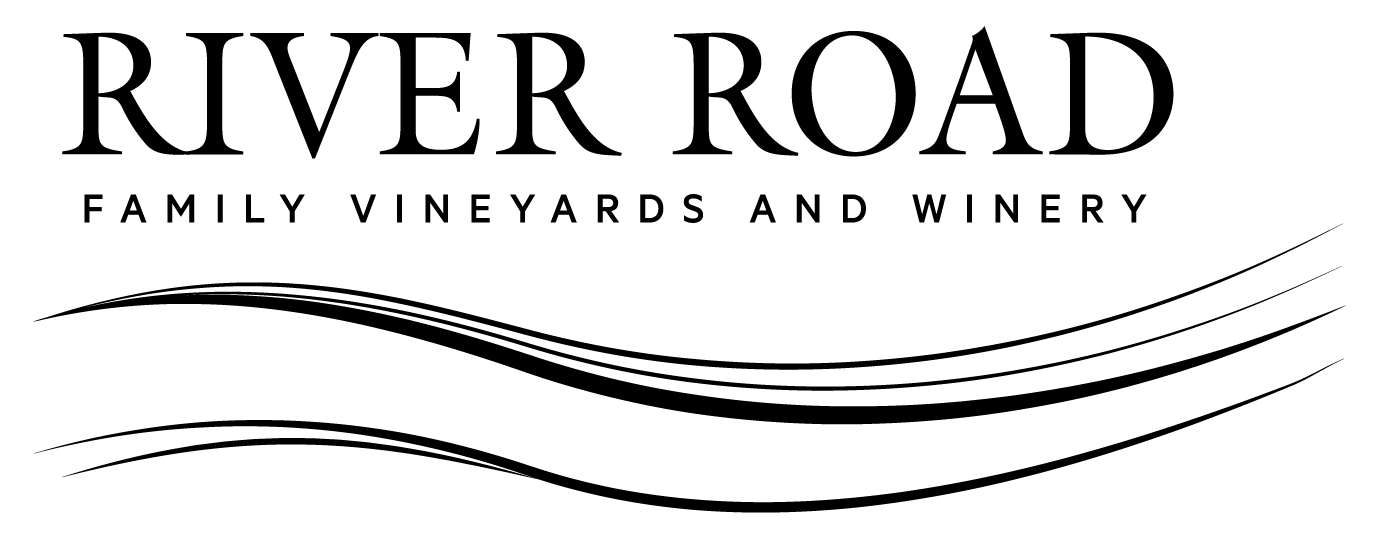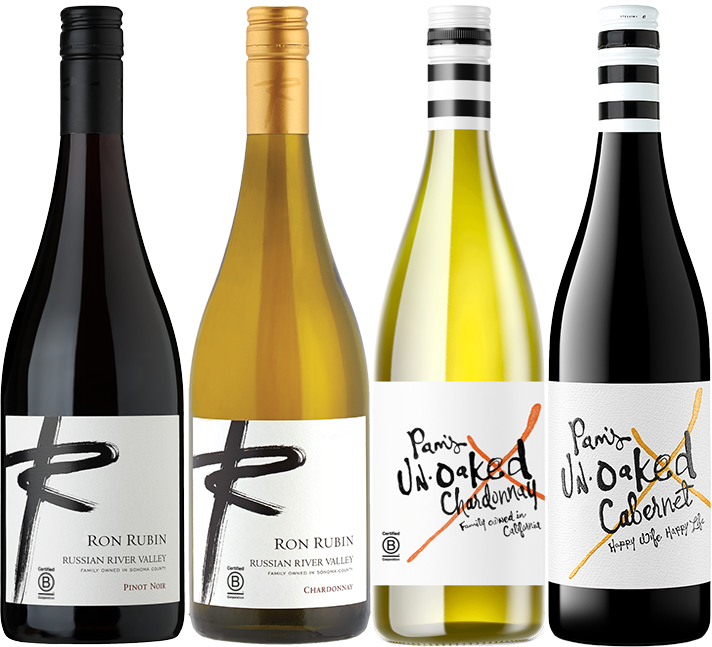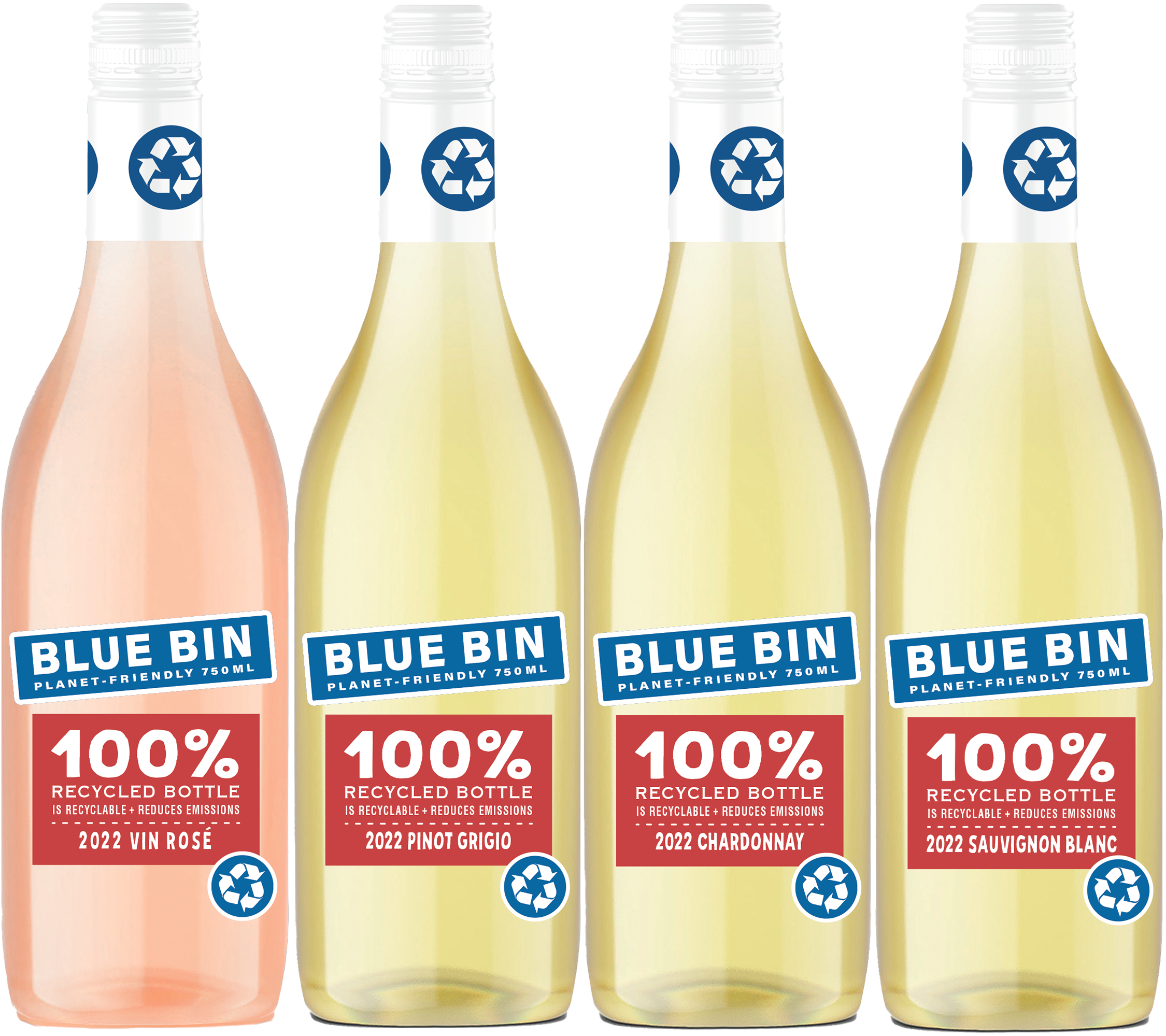WINERY UPDATE
Keeping our vines safe from frost damage was an important duty in early April. Several days early in the month reached the freezing point and required use of our micro-sprinklers for active frost protection. Even on nights when it didn’t quite get down to 32 degrees Fahrenheit, pre-dawn hours in early April often found me in the vineyard, watching the weather station as it updated its temperature readings every fifteen minutes. A quick drop toward freezing was my cue to act, firing up the pumps and ensuring complete coverage across the vineyard.
Overnight work in an area as beautiful as Green Valley of the Russian River Valley is a very rewarding act, making up for the lost hours of sleep. Unlike daytime hours, there is an increased chance of encountering wildlife that make our vineyard their home. I was able to say hello to some of the “locals” on my nighttime rounds.
With very few bright lights in our neighborhood, the moonless hours offered incredible stargazing too! I saw a series of satellites run across the sky in a tight formation, likely one of the SpaceX “constellations” they’ve been launching this year. An incredible grouping of three planets (Jupiter, Saturn and Mars) also greeted me early in the month, hanging in the southern sky near the constellation Scorpio.
We had little rain, only one inch total, during the first week of April, and there is very little chance of heavy precipitation left this rain season. Totals for the entire rain season remain quite low, similar to the drought years in the mid-2010’s. Fortunately, the tools we have implemented for sustainability will help us adjust as needed. The soil moisture probes and weekly vine water stress measurements will be essential this year.
Warm temperatures during the past two weeks have really pushed the vines into high gear, and have kept us busy mowing the cover crop, removing unwanted shoots, and managing the canopy of our mature and vigorous grapevines.
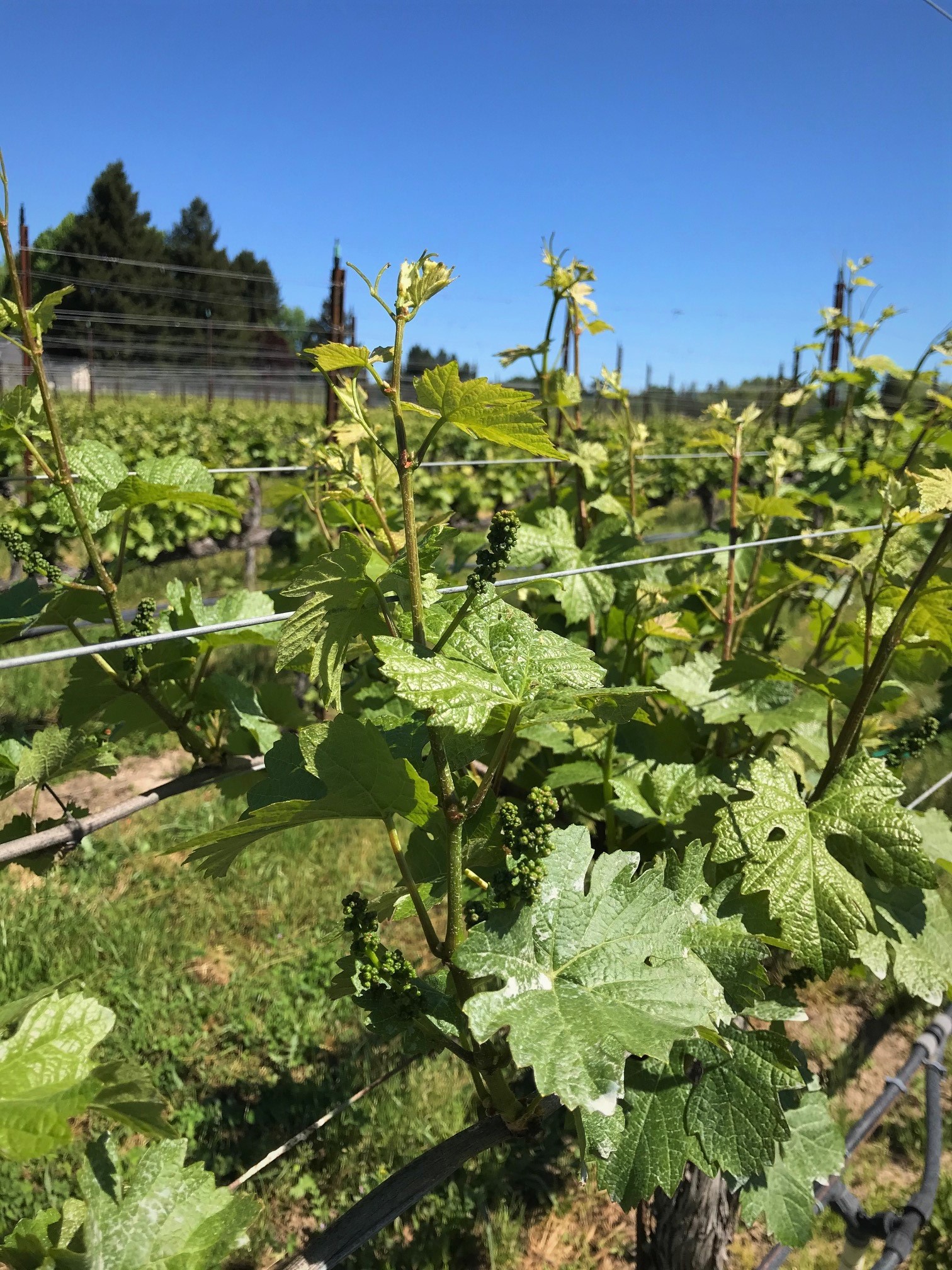
SUSTAINABILITY
One constant activity during late Winter and early Spring is preparation for the upcoming growing season. This typically includes educational seminars presented by University of California – Davis, local industry groups, and many of our suppliers. Recently, Sustainability in Practice (SIP), one of our certifications in the estate vineyard, hosted online presentations with relevant research and tips on how improve vineyard and winery operations.
One of the featured topics was Integrated Pest Management, well known by modern farmers by its acronym, IPM. This is a very engaging concept with an incredibly wide scope. An ecosystem based strategy, IPM aims to accurately identify problems (weeds, insects, mildew, etc) and ensure minimal exposure to any pesticides used. It may surprise you to learn that many organic farmers still apply pesticides, but use IPM strategies and a more limited set of organically derived materials.
There are five critical steps in IPM;
- Pest Identification; This step seems pretty obvious, but it can be difficult to obtain firm ID in real world environments. Training and good tools, such as these flash cards, are critical to success.
- Assessment of site and surrounding hazards; Local conditions will be very important factors in determining best action
- Monitor pest numbers and damage; Often, the amount of damage is not enough to justify action
- Implement control measures; This could include pesticides, but in many cases a problem can be mitigated by cultural or physical controls such as leaf removal or tillage
- Assess results; Did the action taken resolve the problem? If not, what is an alternative treatment?
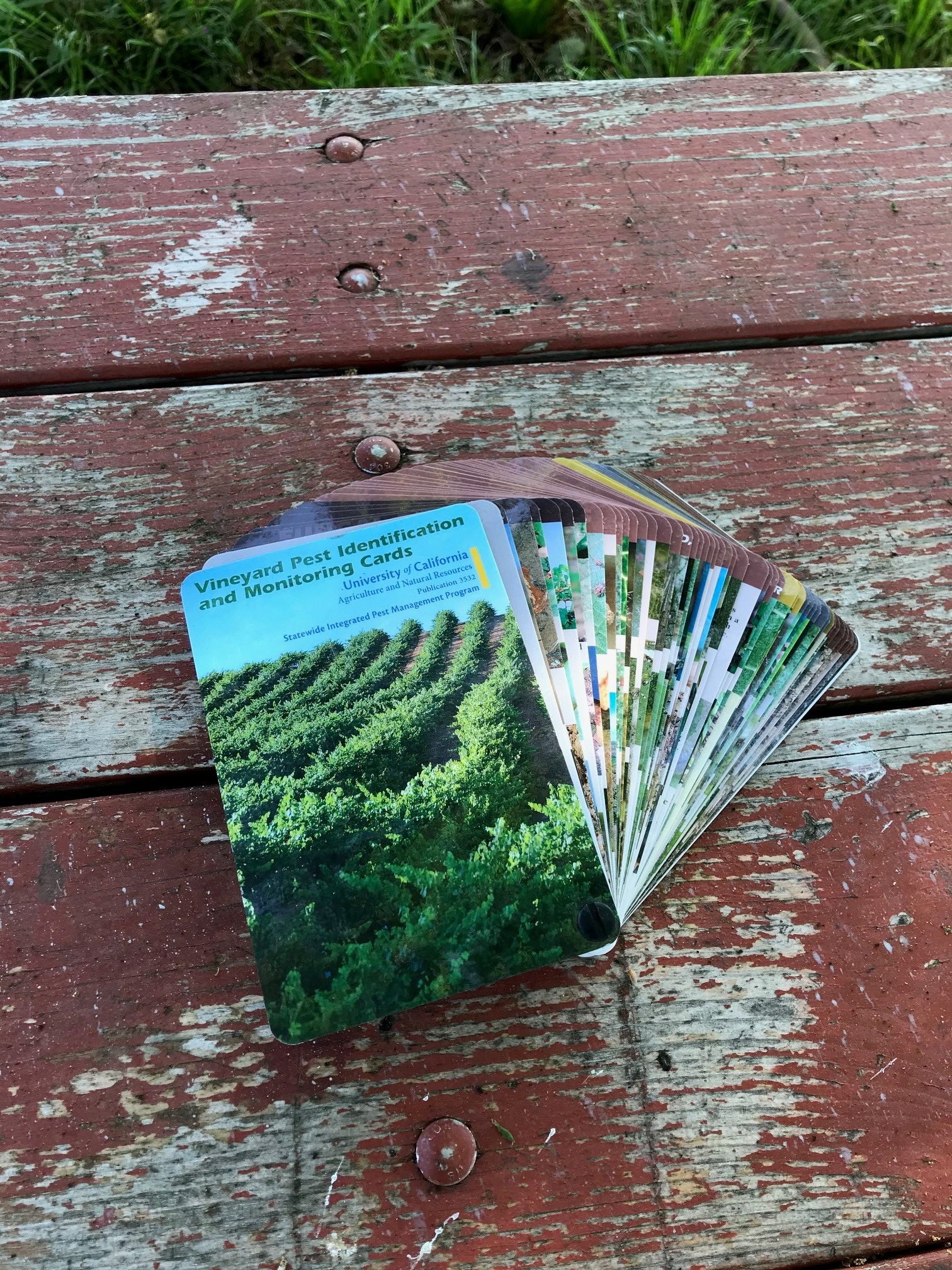
Our first control step when we have concerns about a vineyard pest is nearly always cultural. We have installed and maintained owl nesting boxes, which has resulted in great control over our gopher numbers. Additionally, a lot of hand work goes into managing our vineyard leaf canopy, which leads to lower likelihood of mildew outbreak and reduced need for fungicide sprays. These are two examples out of many that allow us to be responsible in the management of our vineyard.
One positive outcome of the Covid-19 restrictions is the increased amount of time our cellar and winemaking teams get to spend in the vineyard. This has the benefit of increasing time spent outdoors and an increased understanding by our entire team for how our grapes are grown.
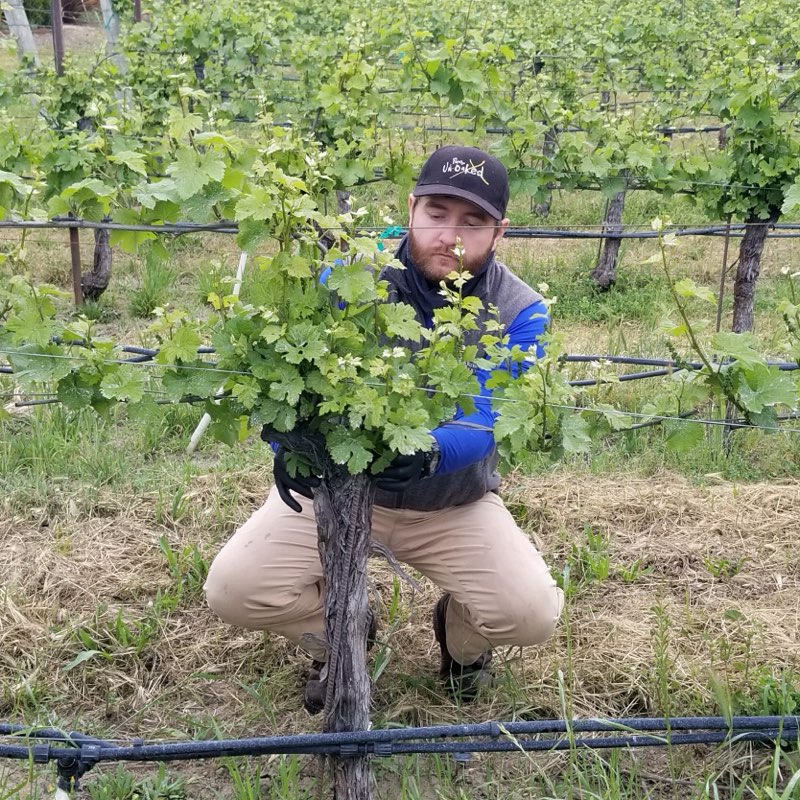
On behalf of the entire team at Ron Rubin Winery, we wish you all continued good health!
Be Well!

